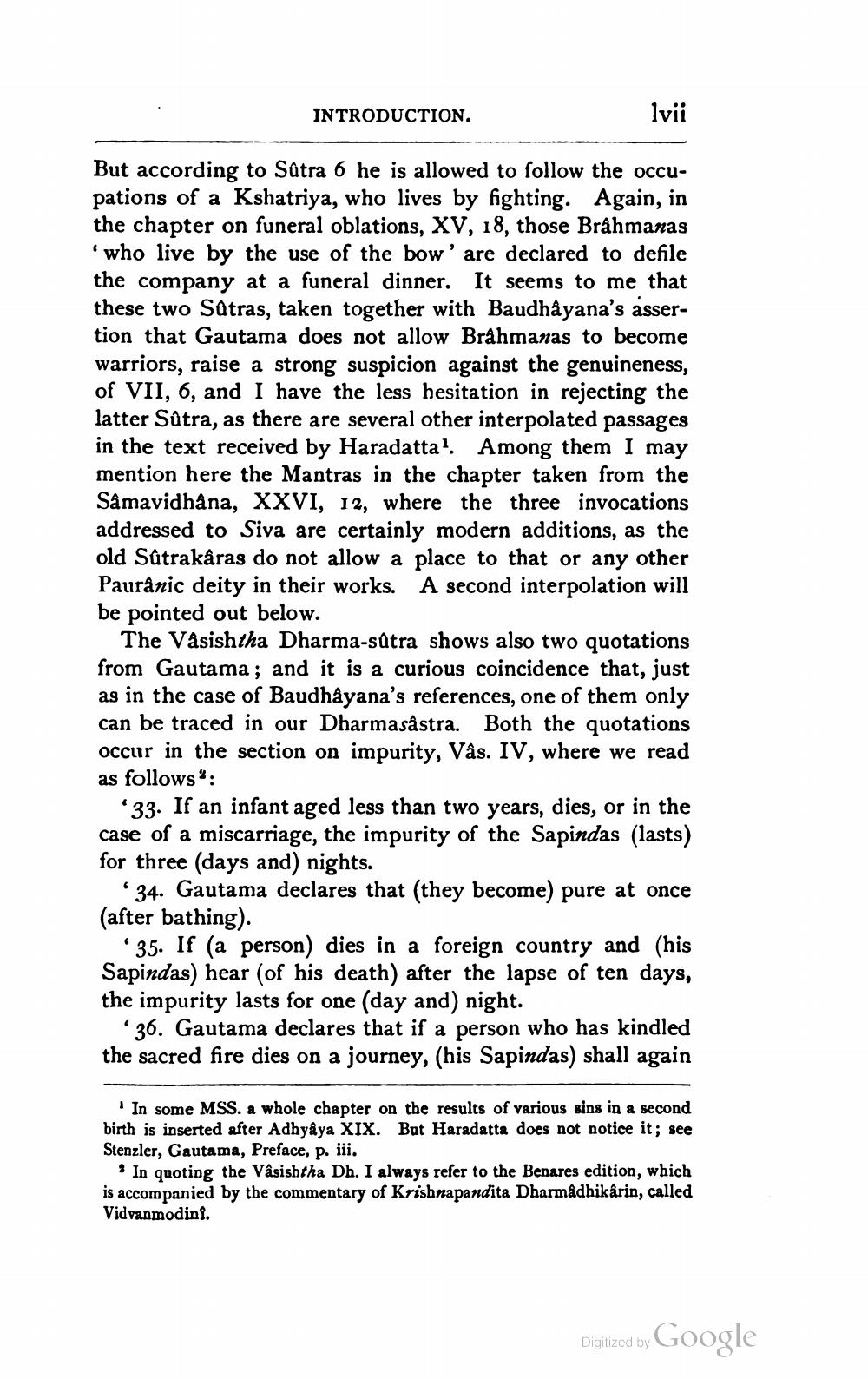________________
INTRODUCTION.
lvii
But according to Sutra 6 he is allowed to follow the occupations of a Kshatriya, who lives by fighting. Again, in the chapter on funeral oblations, XV, 18, those Brahmanas
who live by the use of the bow' are declared to defile the company at a funeral dinner. It seems to me that these two Satras, taken together with Baudhayana's assertion that Gautama does not allow Brâhmanas to become warriors, raise a strong suspicion against the genuineness, of VII, 6, and I have the less hesitation in rejecting the latter Sútra, as there are several other interpolated passages in the text received by Haradattal. Among them I may mention here the Mantras in the chapter taken from the Sâmavidhana, XXVI, 12, where the three invocations addressed to Siva are certainly modern additions, as the old Sutrakaras do not allow a place to that or any other Paurânic deity in their works. A second interpolation will be pointed out below.
The Våsishtha Dharma-sätra shows also two quotations from Gautama; and it is a curious coincidence that, just as in the case of Baudhayana's references, one of them only can be traced in our Dharmasastra. Both the quotations occur in the section on impurity, Vâs. IV, where we read as follows:
'33. If an infant aged less than two years, dies, or in the case of a miscarriage, the impurity of the Sapindas (lasts) for three (days and) nights.
34. Gautama declares that (they become) pure at once (after bathing).
35. If (a person) dies in a foreign country and (his Sapindas) hear (of his death) after the lapse of ten days, the impurity lasts for one (day and) night.
'36. Gautama declares that if a person who has kindled the sacred fire dies on a journey, (his Sapindas) shall again
In some MSS. a whole chapter on the results of various sins in a second birth is inserted after Adhyâya XIX. But Haradatta does not notice it; see Stenzler, Gautama, Preface, p. lii.
' In quoting the Vâsishtha Dh. I always refer to the Benares edition, which is accompanied by the commentary of Krishnapandita Dharmadhikârin, called Vidvanmodini.
Digitized by Google




